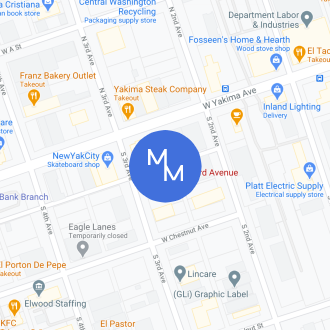Retail giant Sears, Roebuck & Co. issued a voluntary recall last month that covers almost 800,000 Kenmore dehumidifiers, according to CPSC reports. The recall was issued as a result of complaints that the units can overheat, smoke, melt and catch on fire, posing fire and burn hazards to consumers. Sears received 107 reports of incidents causing over $7 million in property damages. In addition, there have been three reports of smoke inhalation injuries associated with the defective dehumidifiers. The dehumidifiers that are part of the recall are described as follows:
“35-, 50- and 70-pint dehumidifiers with a Kenmore logo on the front top of the unit, manufactured between 2003 and 2005. The dehumidifiers are made of white plastic and are between 21 and 24 inches tall, about 15 inches wide and about 13.5 inches in depth. They have fan and humidity controls on their top front panels and some models include remote controls. They come with front-loading water buckets. The model number can be found on the right side of the interior of the unit once the bucket has been removed.”
To determine if your specific unit is part of the recall, visit the U.S. Consumer Product Safety Commission, or CPSC, website where model numbers are listed.
Defective Products and the Law
Billions of products are sold to consumers in the United States each year. Although the vast majority of those products are safe, the sheer volume of products makes it a statistical likelihood that some unsafe products will make it into the hands of consumers. When a defective product causes injury to a consumer, the area of the law that addresses those injuries is known as product liability law. Product liability law falls within the larger area of the law known as tort law, or injury law. Tort law attempts to compensate victims who have been injured by someone else’s actions or inactions. The most common example of a tort law case is a personal injury accident case. Product liability cases are similar to a personal injury car accident case in that the law attempts to provide a mechanism to compensate a victim who has been injured by a product in much the same way as the victim of a car accident is compensated for injuries sustained in the car accident.
Product liability cases can be divided into three broad categories—design defects, manufacturing defects, and failure-to-warn cases. Design defects are often referred to as “intentional defects,” not because they are actually introduced into a product intentionally but because they are part of the actual design of the product. In other words, all of the products produced with that design are defective.
A manufacturing defect is something that has occurred during the manufacturing phase of a product. Typically, only a small portion of the products will be affected. For example, if the calibration of a machine used to manufacture a product is off during some of the production, then only the products produced during that time period and using that machine will have the defect.
Failure-to-warn product liability cases are a bit different than design or manufacturing defect cases. Some products are inherently dangerous, regardless of efforts to make them safe. Fireworks, for example, are inherently dangerous, and there is no way to make them safe. For products such as these, the manufacturer of the product has a duty to adequately warn consumers of the danger. If the manufacturer fails to provide adequate warnings, then an injured consumer may have the basis for a product liability lawsuit against the manufacturer.
Each year, thousands of products are recalled in the United States because of a potential defect or danger in the product. Some products are voluntarily recalled, while others are involuntarily recalled. Many recalls are for small defects that don’t cause significant risks to consumers; however, each year a substantial number of products are recalled because they pose serious, even life-threatening, risks to consumers. If you are concerned about a product, you can check with the CPSC’s website to see if the product has been recalled.
If you have been injured by what you believe is a defective product, you may be entitled to compensation for your injuries. The Washington State product liability attorneys at the Mariano Morales Law can help. Contact the team today by calling (509) 853-2222 or by using our online contact form for your free initial consultation.



 Site by
Site by